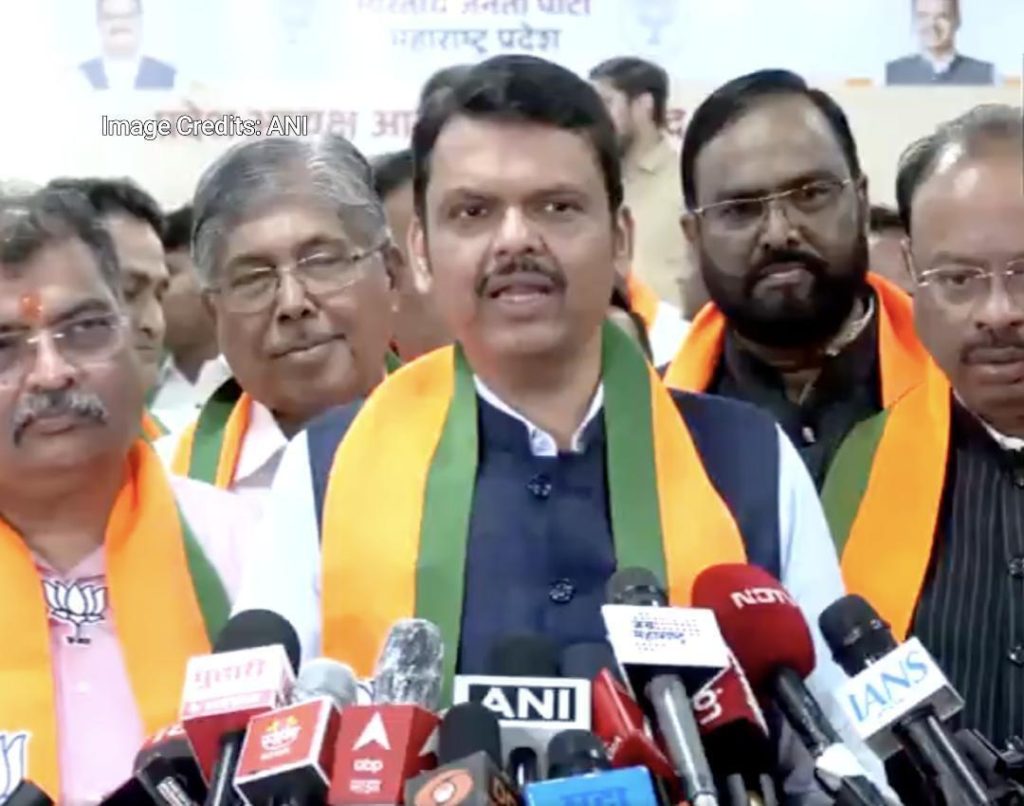
Title: Palturam’ right name for Uddhav Thackeray: Maha CM on language row
The recent controversy over making Hindi the default language in Maharashtra has taken a new turn with Chief Minister Devendra Fadnavis launching a scathing attack on his predecessor, Uddhav Thackeray. Fadnavis alleged that Thackeray had double standards on the issue of language and accused him of being a hypocrite. He even went as far as to call Thackeray “Palturam”, implying that he was a turncoat.
The controversy began when the Maharashtra government decided to make Hindi the default language, sparking widespread protests and criticism from various sections of society. The decision was later withdrawn, but not before it had become a major political issue.
Fadnavis, who is a strong advocate of Hindi, accused Thackeray of being against the language when he was in power, but now suddenly supporting it. He pointed out that when Thackeray’s government was in power, it had made Hindi compulsory in schools, following the recommendations of the Raghunath Mashelkar Committee.
“Palturam is the correct name for him,” Fadnavis said, “When they were in power, they had made mandatory the teaching of Hindi, which the Raghunath Mashelkar Committee recommended. But now, they are opposing it. This is hypocrisy at its best.”
Fadnavis’s comments have been widely criticized by Thackeray’s supporters, who see them as an attempt to divert attention from the government’s failure to provide basic amenities like electricity and water to the people of Maharashtra. They argue that the government’s decision to make Hindi the default language was an attempt to impose a particular language on the people of the state, and that it was unacceptable.
However, Fadnavis and his supporters argue that Hindi is an important language that should be promoted in Maharashtra, given its strategic location and its potential to attract investment and development. They point out that many countries in the world have multiple languages, and that there is no reason why Maharashtra should not have Hindi as one of its official languages.
The debate over language is an emotive one in India, and it is not surprising that it has sparked such strong reactions. However, it is also important to remember that language is not just a matter of personal preference, but also a matter of policy and governance.
As India’s most populous state, Maharashtra has a unique position in the country’s language landscape. It is home to many languages, including Marathi, Hindi, Urdu, and English, and it has a long history of linguistic diversity. However, in recent years, there has been a growing trend towards the use of Hindi as a lingua franca, particularly in urban areas.
This trend has been driven in part by the economic and cultural ties between Maharashtra and the rest of India, as well as by the growing importance of Hindi as a global language. However, it has also been criticized by many Marathi speakers, who see it as a threat to their language and culture.
The controversy over Hindi in Maharashtra is just the latest chapter in a long and complex debate over language in India. It is a debate that is likely to continue for many years to come, and one that will require careful consideration of the needs and aspirations of all language speakers in the country.
In conclusion, the recent controversy over Hindi in Maharashtra has highlighted the complex and emotive nature of language politics in India. While Fadnavis’s comments may have been intended to stir up controversy, they also highlight the importance of considering the needs and aspirations of all language speakers in the country. As we move forward, it is essential that we find a way to promote linguistic diversity and inclusion, while also recognizing the importance of Hindi as a global language.
News Source:
https://x.com/ANI/status/1939628860553023989






